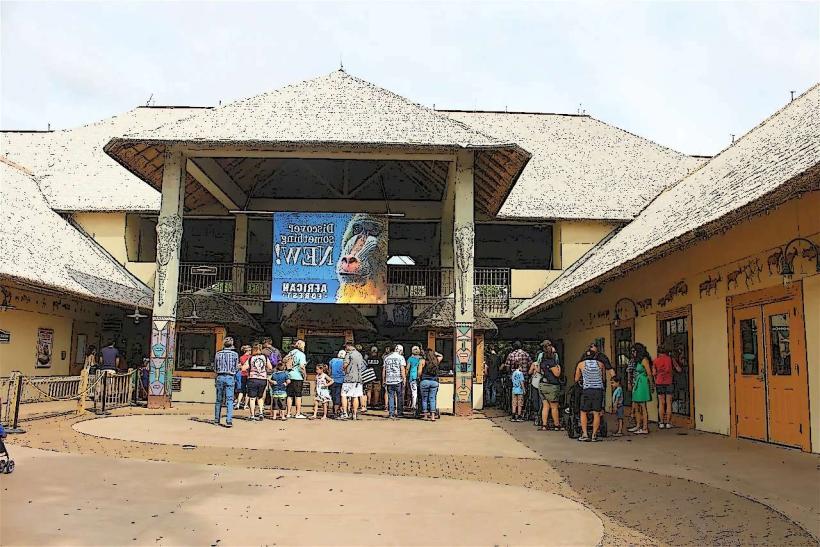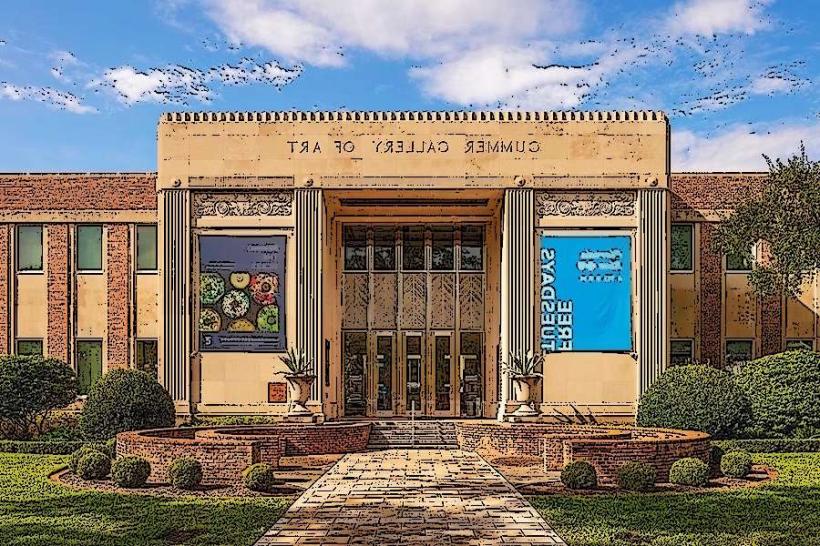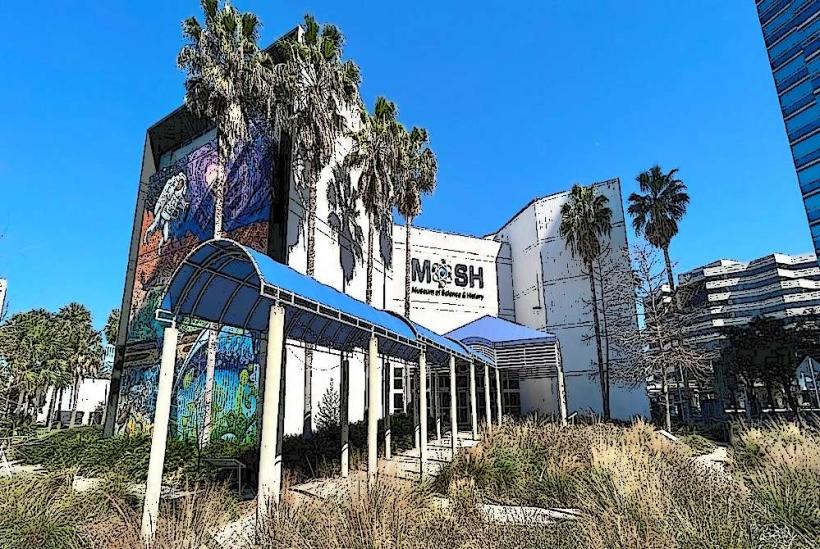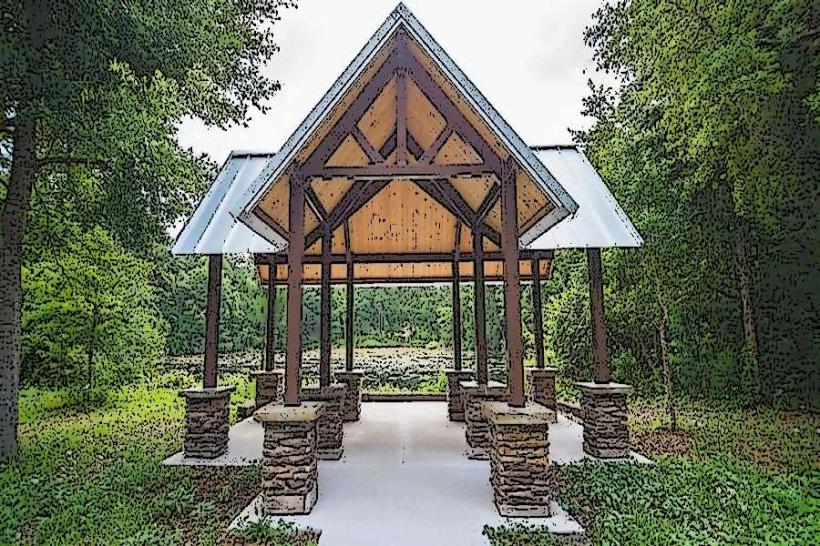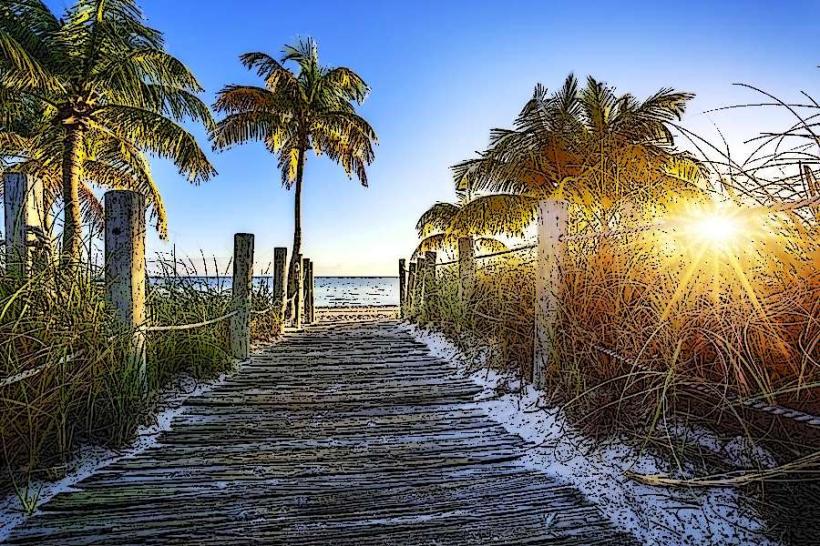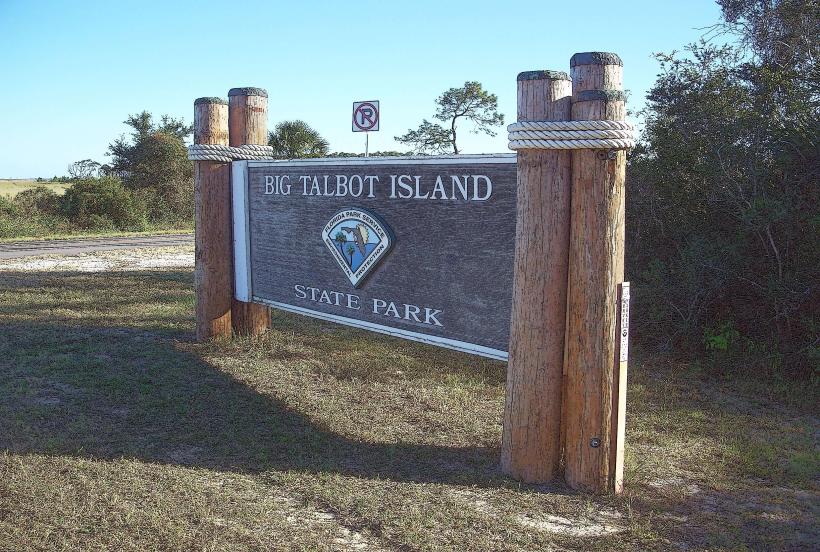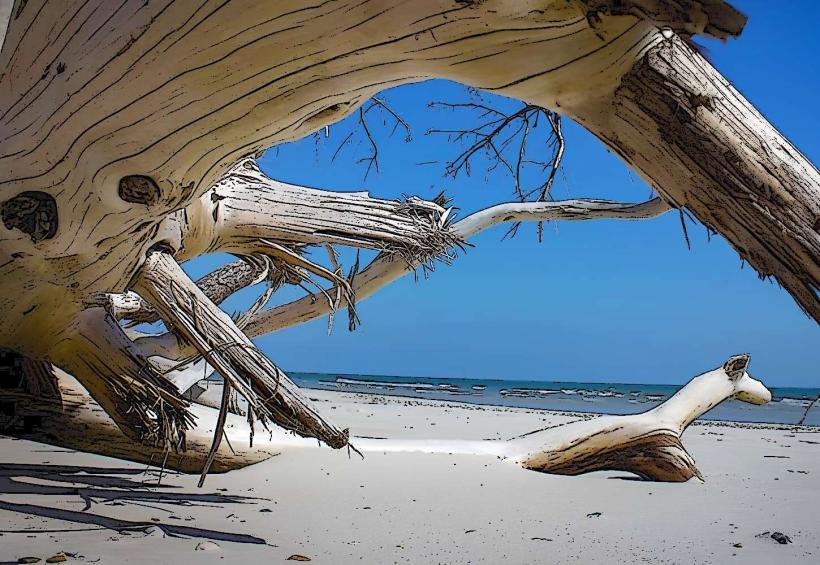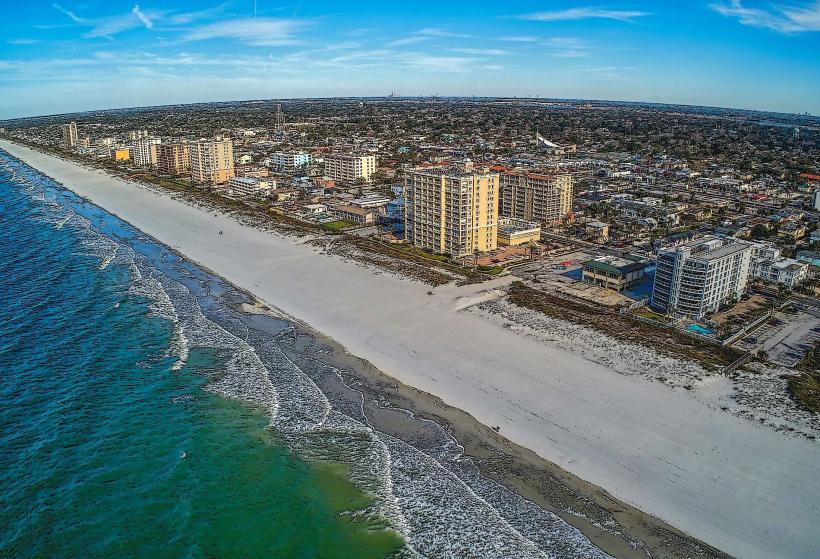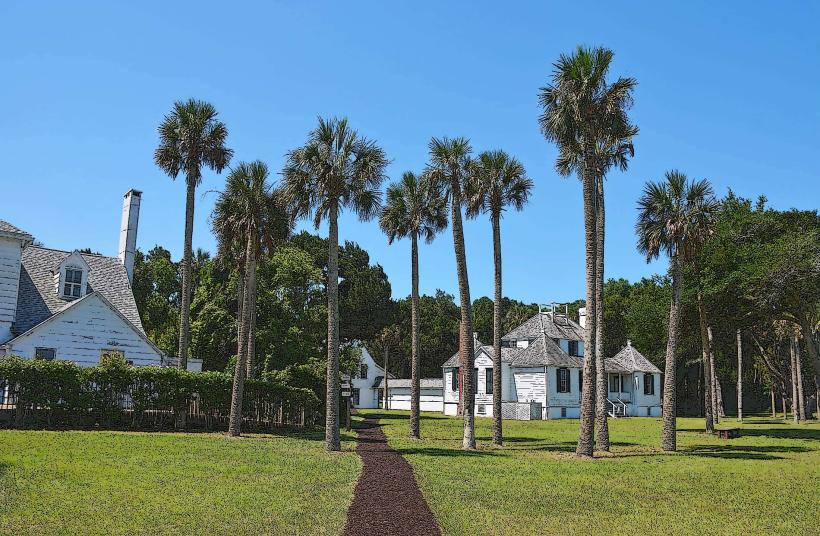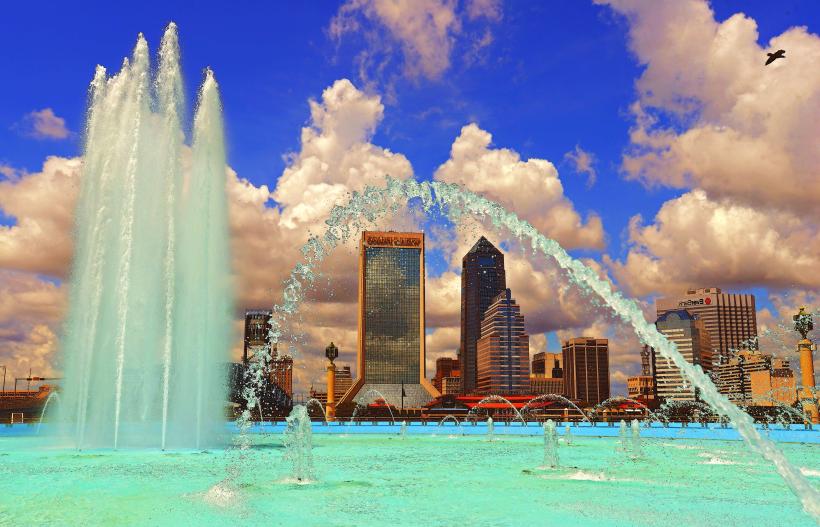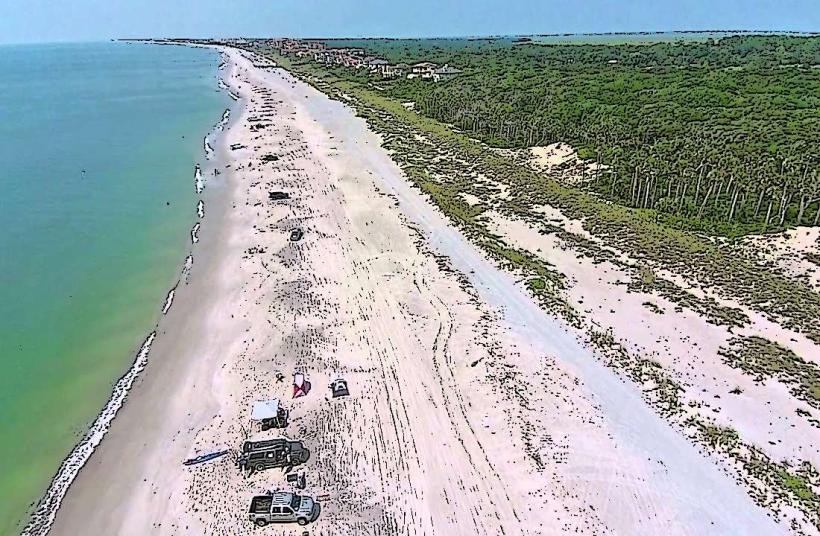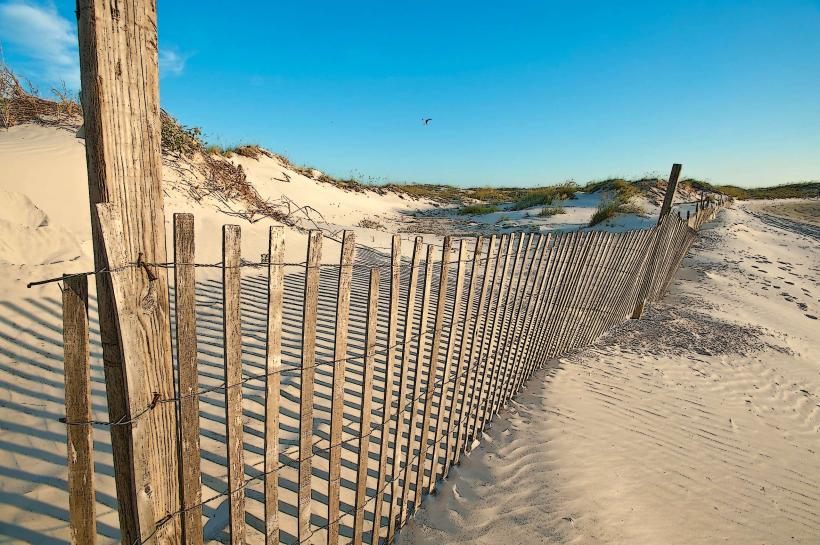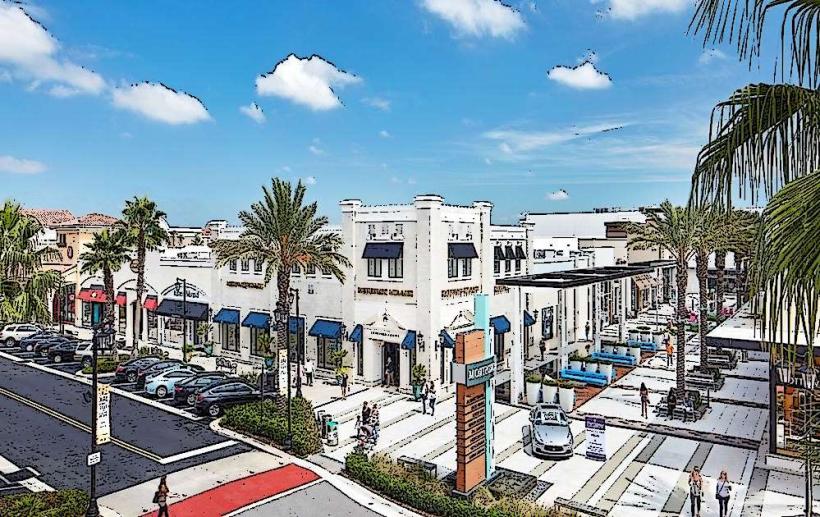Information
Landmark: Fort Caroline National MemorialCity: Jacksonville
Country: USA Florida
Continent: North America
Fort Caroline National Memorial, Jacksonville, USA Florida, North America
Fort Caroline National Memorial is located in Jacksonville, Florida, within the Timucuan Ecological and Historic Preserve. It commemorates the French colonial settlement established in the 16th century and serves as a reminder of the early European efforts to settle in the New World, their interactions with the Native American Timucua tribe, and their eventual destruction at the hands of the Spanish.
Historical Significance
In 1564, French Huguenot explorers, led by René Goulaine de Laudonnière, established Fort Caroline on the banks of the St. Johns River. It was one of the first European attempts at establishing a permanent colony in North America. The fort was part of the French efforts to colonize Florida and establish a foothold in the Americas during a period of religious conflict in Europe. The French fort was designed as a defensive structure, and the settlement represented the aspirations of the Huguenots to create a haven free from religious persecution.
However, the French presence in Florida was short-lived. In 1565, Spanish forces led by Pedro Menéndez de Avilés attacked and overran the French settlement. The Spanish not only destroyed Fort Caroline but also massacred many of its defenders. The few survivors were either captured or fled, marking the end of the French attempt to establish a permanent presence in Florida. The Spanish rebuilt a fort in the same location, which was eventually abandoned. The area remained relatively unknown until the Spanish presence was replaced by later French and British interests.
The Fort Caroline National Memorial stands as a tribute to these early European encounters, emphasizing the complex history of colonization, conflict, and cooperation in the region.
Visitor Experience
Timucuan Preserve Visitor Center:
The visitor center is the main point of contact for guests and provides detailed information about the memorial's history, the cultural significance of the area, and the Timucua tribe. Exhibits inside the center explore the natural history of the region and the people who lived there long before European explorers arrived. Interactive displays provide insight into the challenges faced by the early French settlers and their interactions with the native populations.
Hours: Wednesday through Sunday, from 9:00 a.m. to 5:00 p.m. (closed on Mondays and Tuesdays).
Location: 12713 Fort Caroline Road, Jacksonville, FL.
Contact: (904) 641-7155
Admission: Free.
Replica of Fort Caroline:
A short walk from the visitor center leads to a replica of Fort Caroline, which was constructed in 1924 based on 16th-century drawings and descriptions. This replica gives visitors an opportunity to explore what the fort may have looked like during its brief existence. Although not an exact recreation of the original fort (due to the lack of detailed historical records), the replica provides an insightful look at the construction techniques used by the early French settlers and the strategic design of the fort. Visitors can walk around the fort and observe how its placement offered protection from potential attacks.
Nature Trails and Outdoor Activities
Ribault Column:
Not far from the fort is the Ribault Column, a monument placed in 1924 to commemorate French explorer Jean Ribault's claim to Florida in 1562. Ribault and his expedition made a landing in the area and planted a stone marker claiming the land for France. The column stands as a symbol of the early French efforts to establish their presence in North America. The monument offers beautiful views of the surrounding landscape and is a popular spot for visitors to take photos.
Nature Trails:
The Fort Caroline National Memorial is part of the larger Timucuan Ecological and Historic Preserve, which encompasses diverse ecosystems like coastal salt marshes, hardwood forests, and tidal wetlands. The preserve features several nature trails that provide opportunities for outdoor enthusiasts to explore the unique environment of the area.
Birdwatching: The trails are home to a variety of bird species, making the preserve a popular spot for birdwatching. The coastal and forested areas provide rich habitats for both migratory and resident birds.
Wildlife Observation: Visitors may encounter native wildlife, such as white-tailed deer, raccoons, and various species of amphibians and reptiles. The wetlands and marshes also support a variety of aquatic life, including fish and shellfish.
Additional Attractions in the Timucuan Preserve
Theodore Roosevelt Area:
This 600-acre preserve is named after the U.S. president and is dedicated to protecting the region's natural beauty. The Theodore Roosevelt Area offers a variety of hiking trails through coastal forests and salt marshes. It is an excellent place for visitors to enjoy a peaceful walk and immerse themselves in the area's natural surroundings.
Spanish Pond:
Another feature of the Timucuan Preserve is Spanish Pond, a freshwater pond that has historical significance. This is thought to be the location where Spanish soldiers camped before they attacked and destroyed Fort Caroline. While the exact location of the battle remains uncertain, Spanish Pond is one of the few remaining areas that provide a glimpse into the events that unfolded during the Spanish assault on the fort.
Planning Your Visit
Accessibility: The memorial is accessible by car, and there is ample parking at the visitor center. The site is wheelchair accessible, though some of the trails may be more challenging for those with mobility concerns.
Guided Tours and Educational Programs: While self-guided tours are available, the National Park Service also offers educational programs and ranger-led tours on selected days. These programs provide deeper insight into the historical events that occurred at Fort Caroline and the broader history of the Timucuan region.
Nearby Attractions
Jacksonville Zoo and Gardens: Just a short drive from Fort Caroline, the Jacksonville Zoo and Gardens is a family-friendly destination featuring over 2,000 animals and various themed gardens.
Kingsley Plantation: A short distance from the memorial, this historic plantation offers a glimpse into the lives of enslaved people in Florida. The plantation includes preserved structures like the slave quarters and the plantation house.
Atlantic Beach and Jacksonville Beach: These nearby beaches provide opportunities for relaxing, picnicking, and enjoying water activities. They are perfect for families looking to spend a day at the coast after exploring the memorial.
Summary
Fort Caroline National Memorial is a unique historical and natural site that offers a rich experience for visitors interested in early American history and the environment. Whether you’re exploring the replica fort, walking along the nature trails, or learning about the cultural and natural history of the area, Fort Caroline provides an immersive and educational experience. The memorial not only commemorates the French attempts to colonize Florida but also provides a space to reflect on the complex history of European and Native American interactions in the New World. It’s a must-visit for history enthusiasts, nature lovers, and anyone interested in early American exploration.

